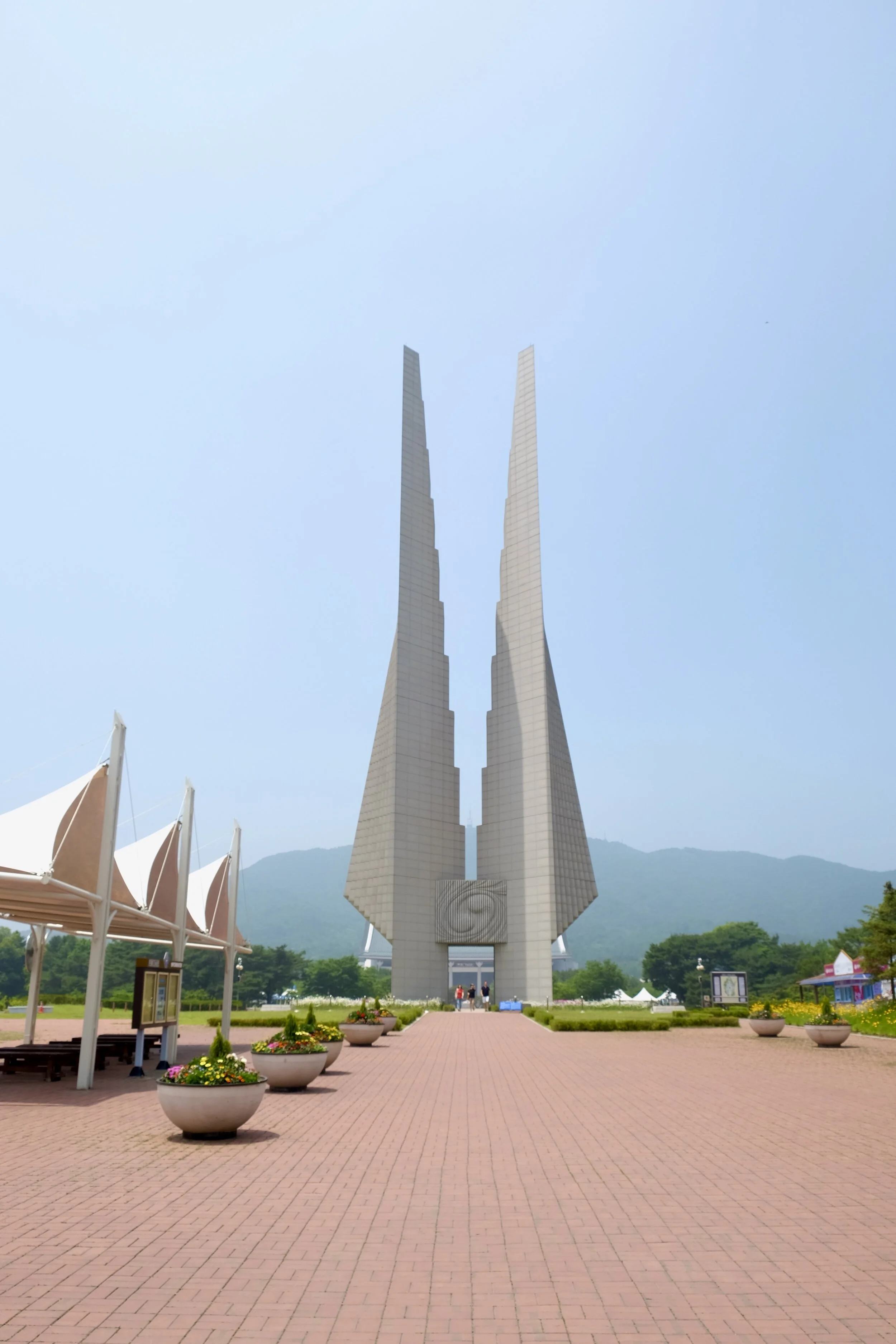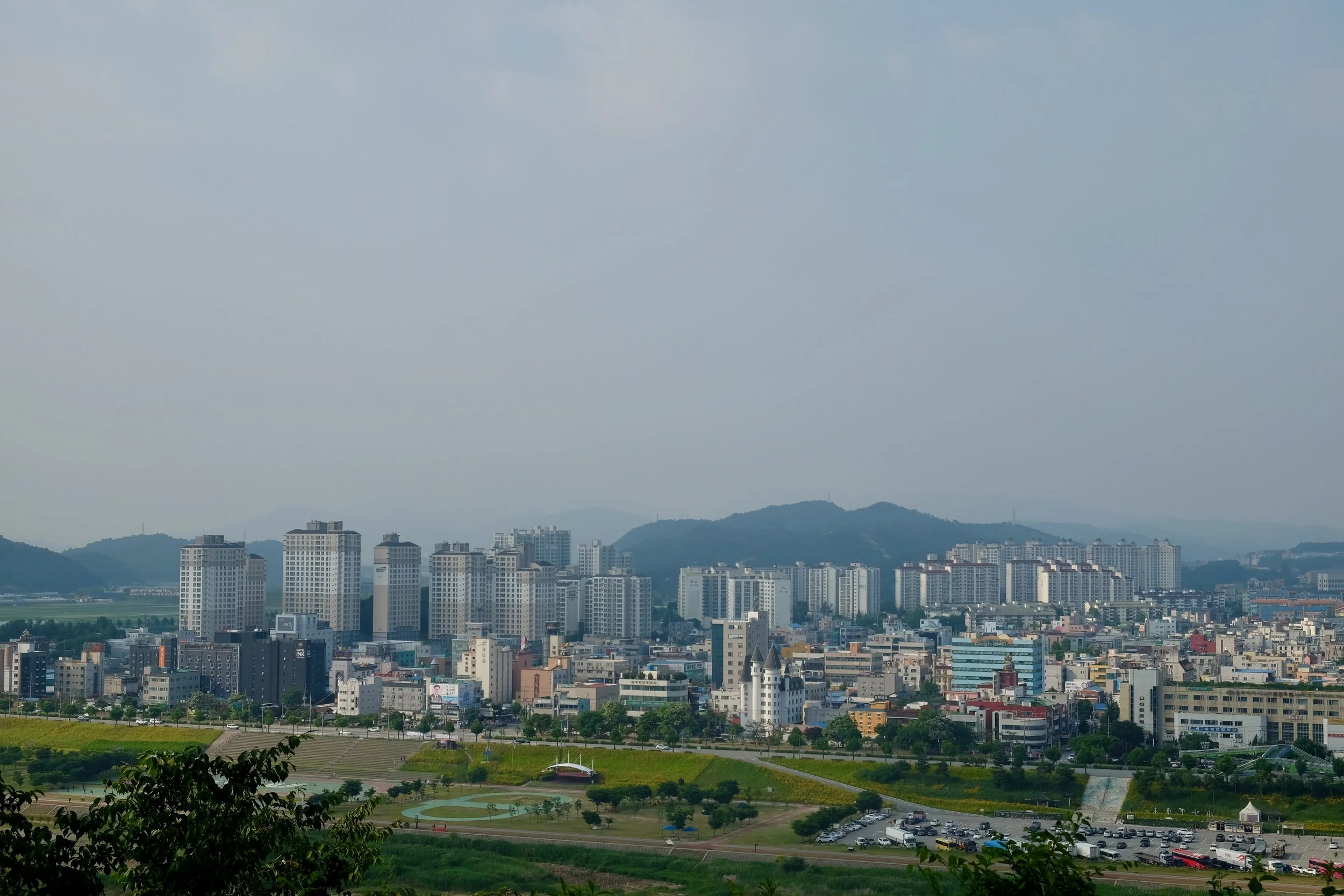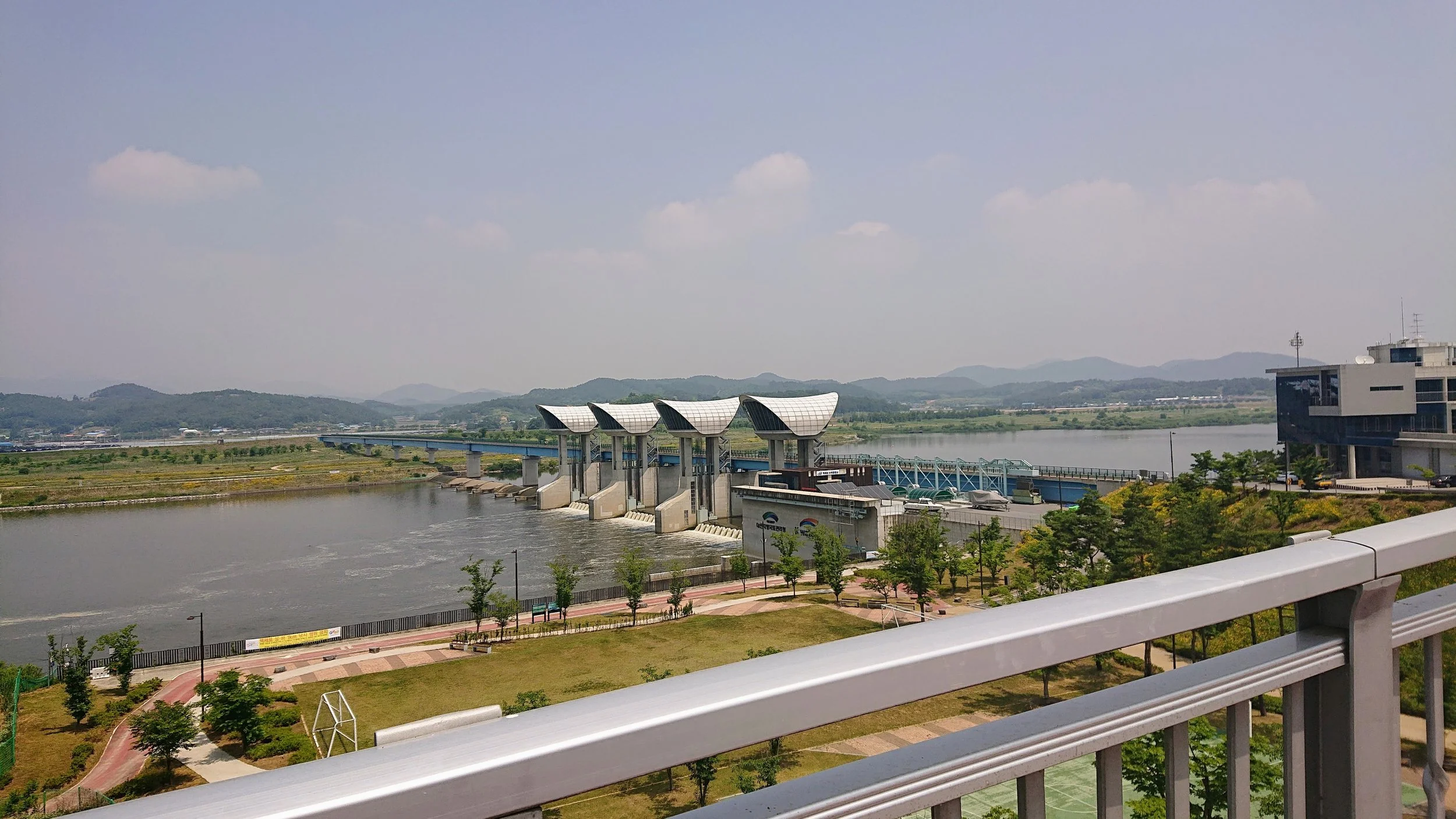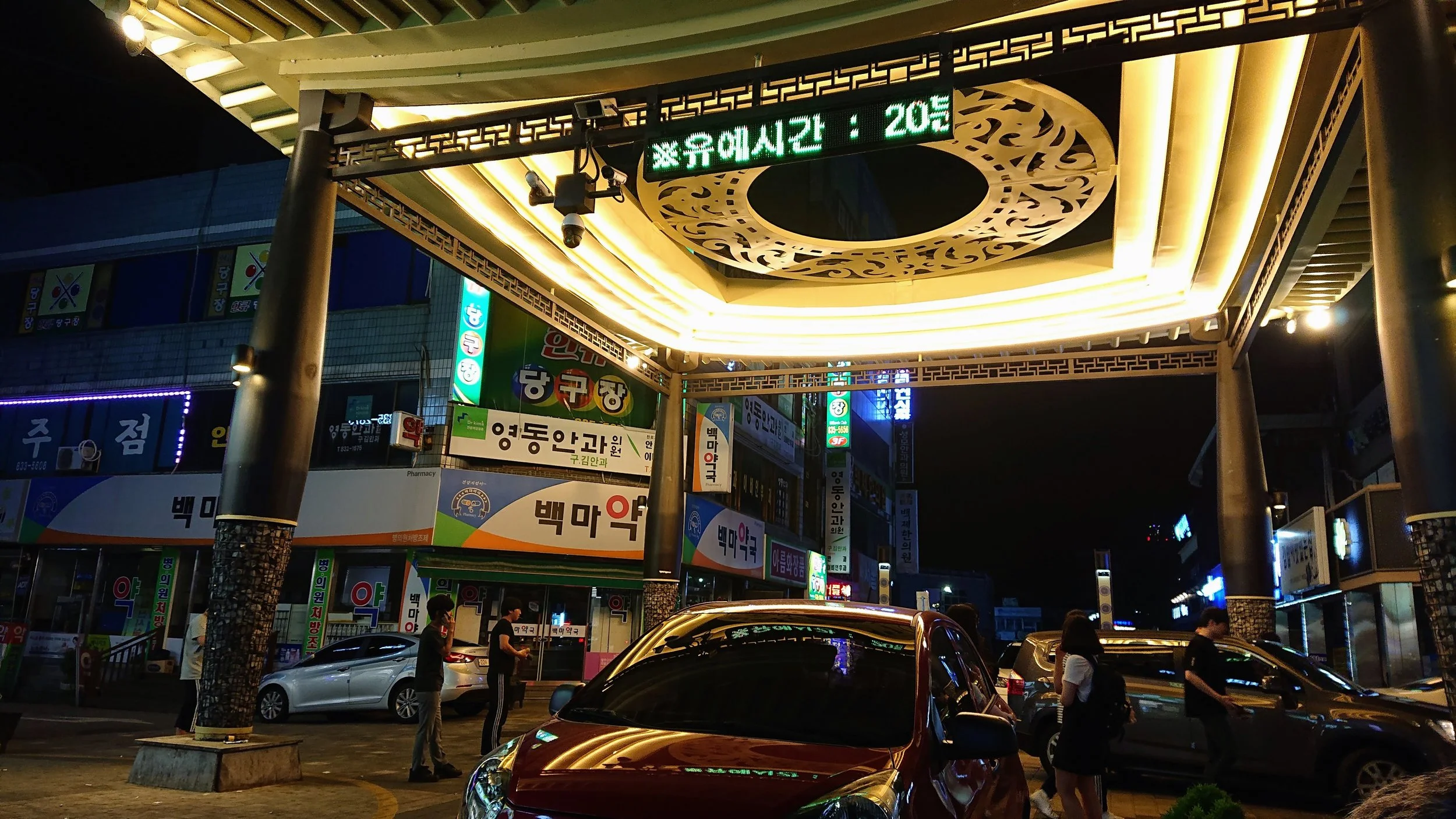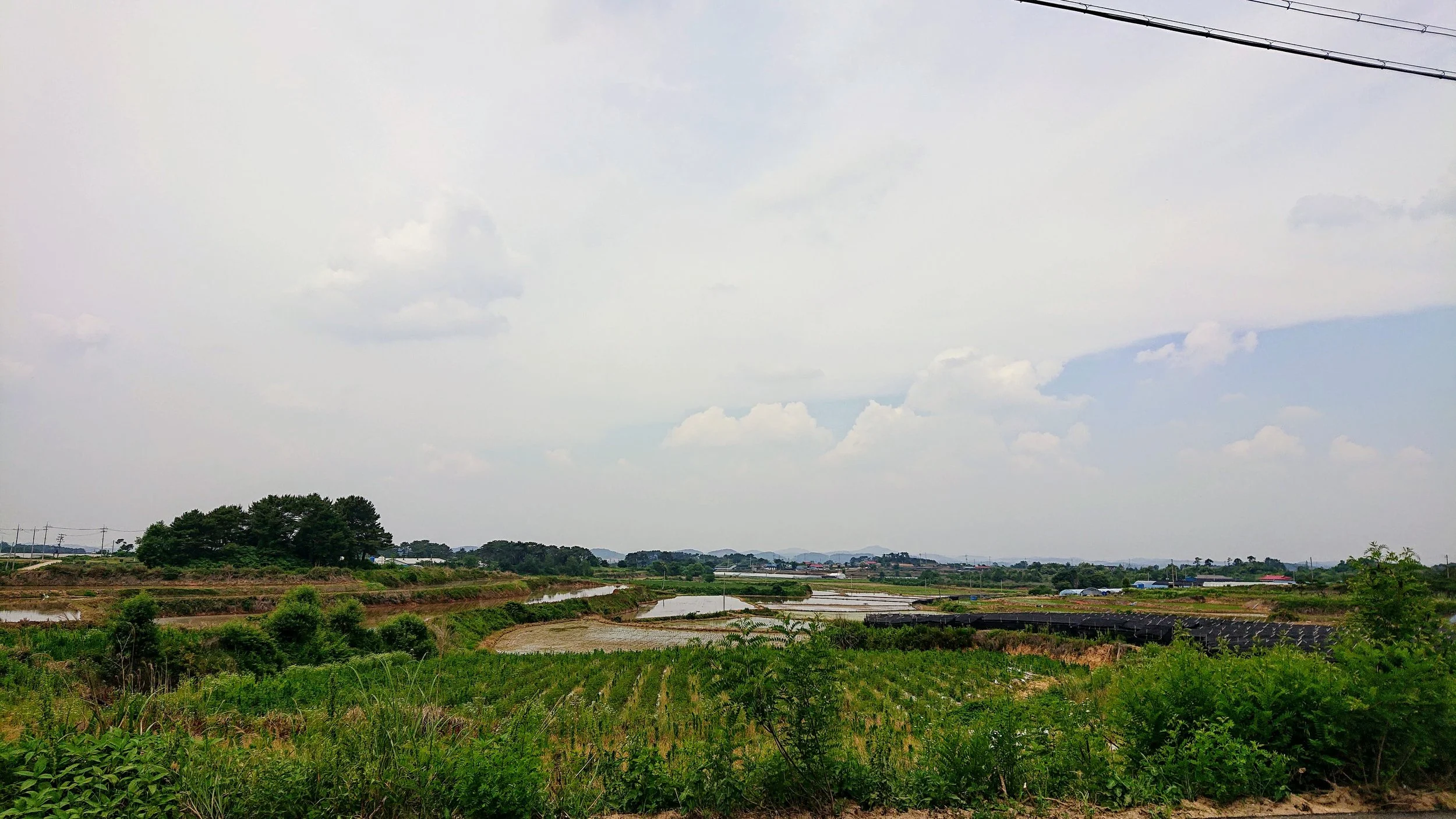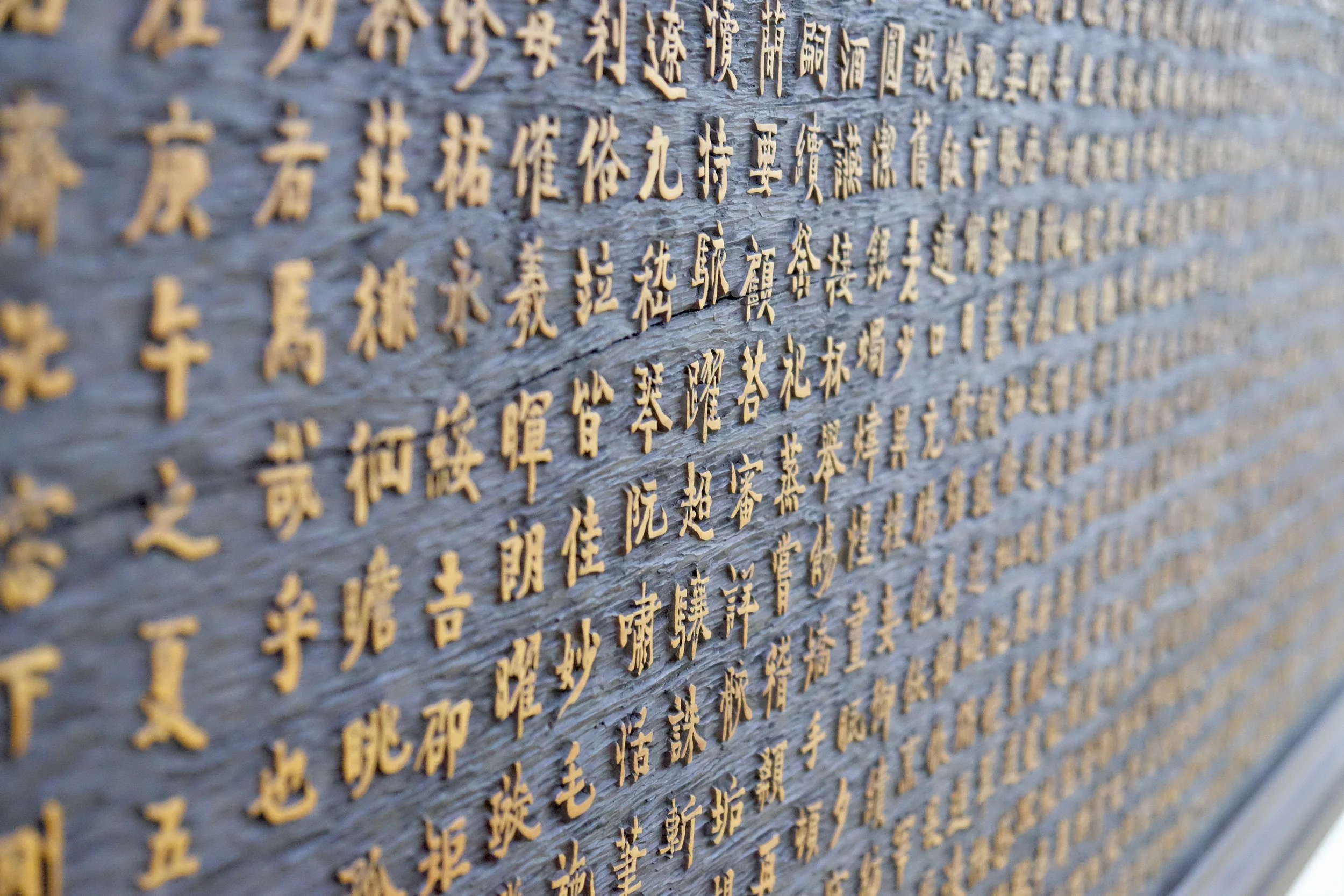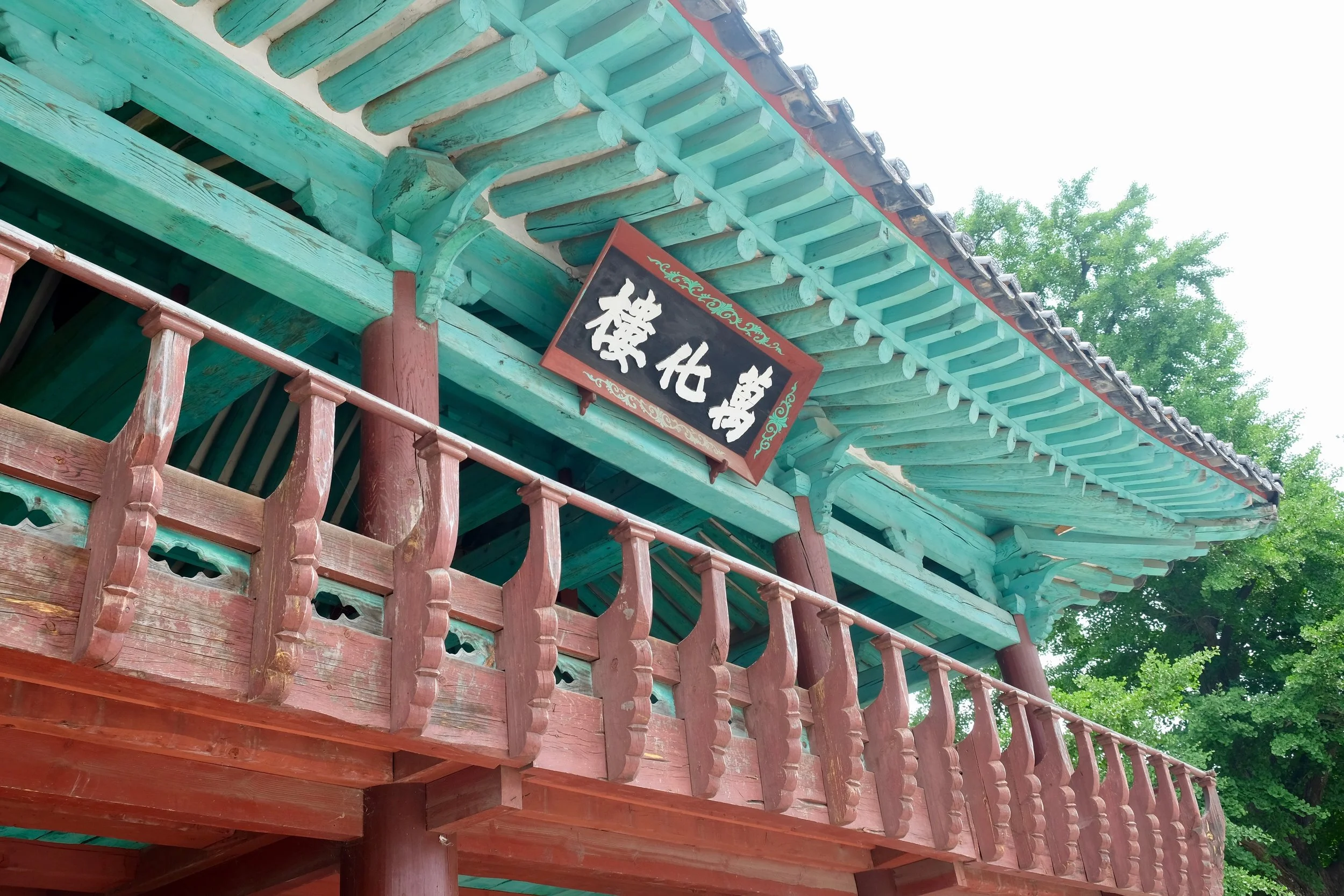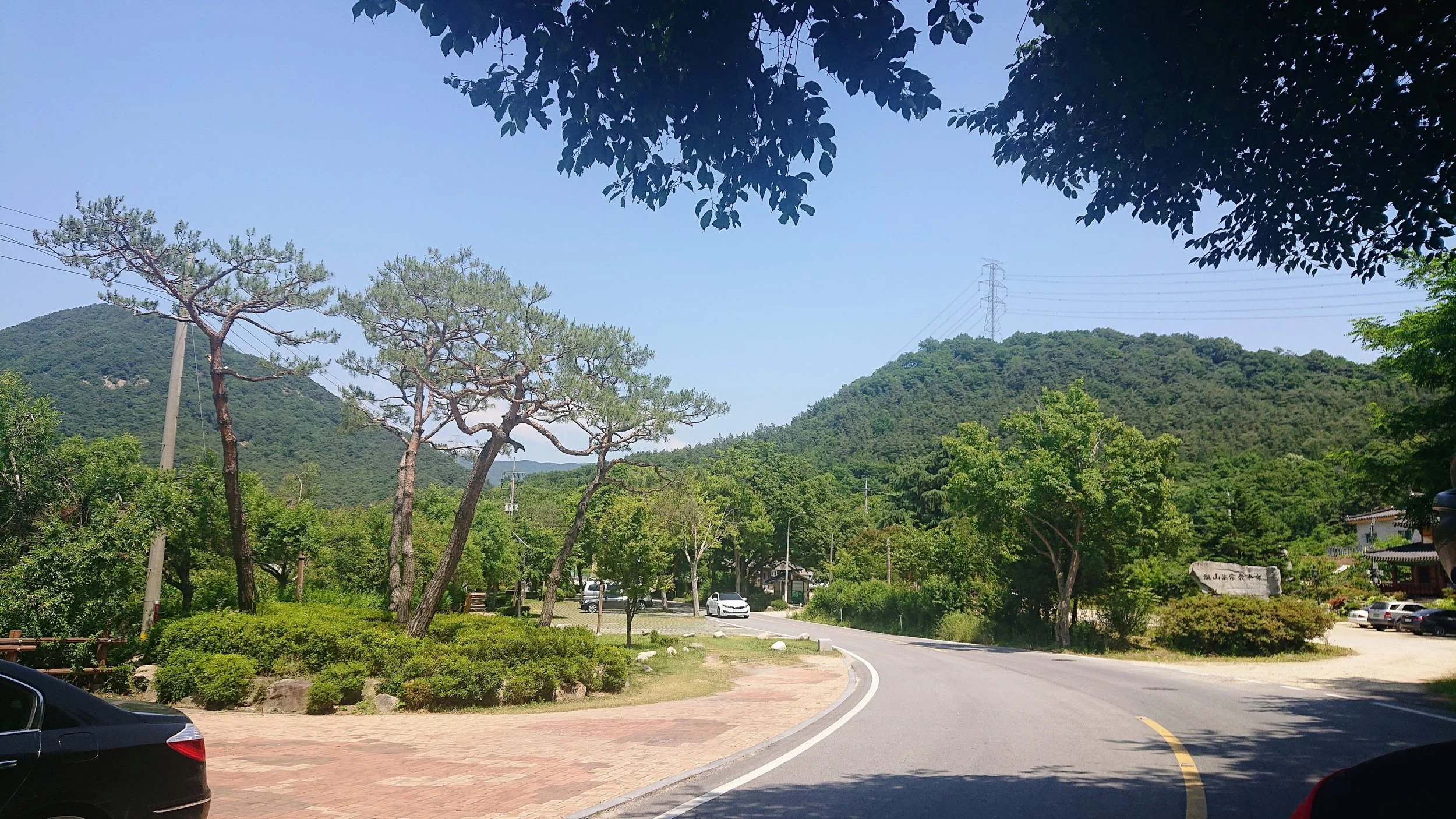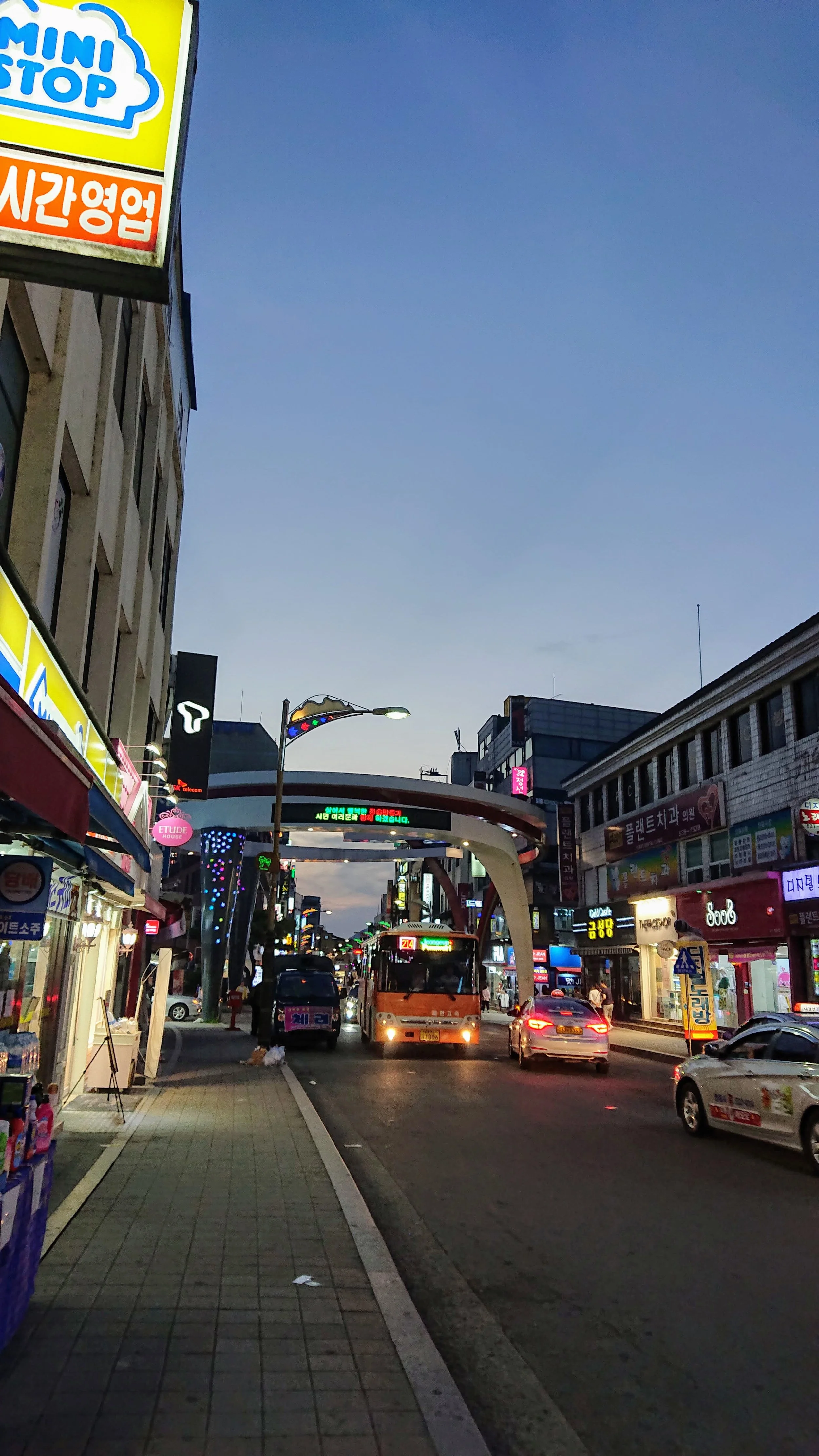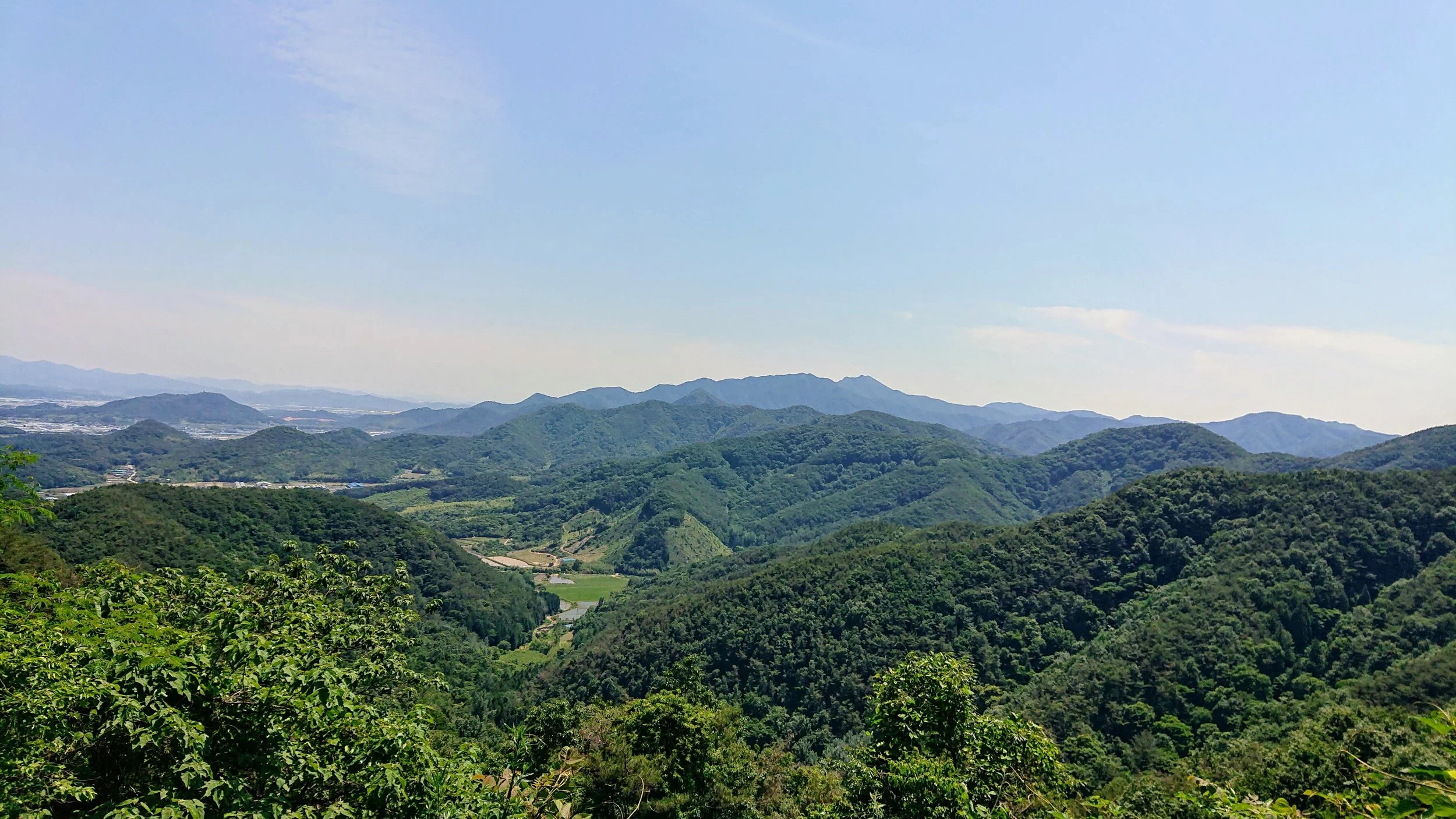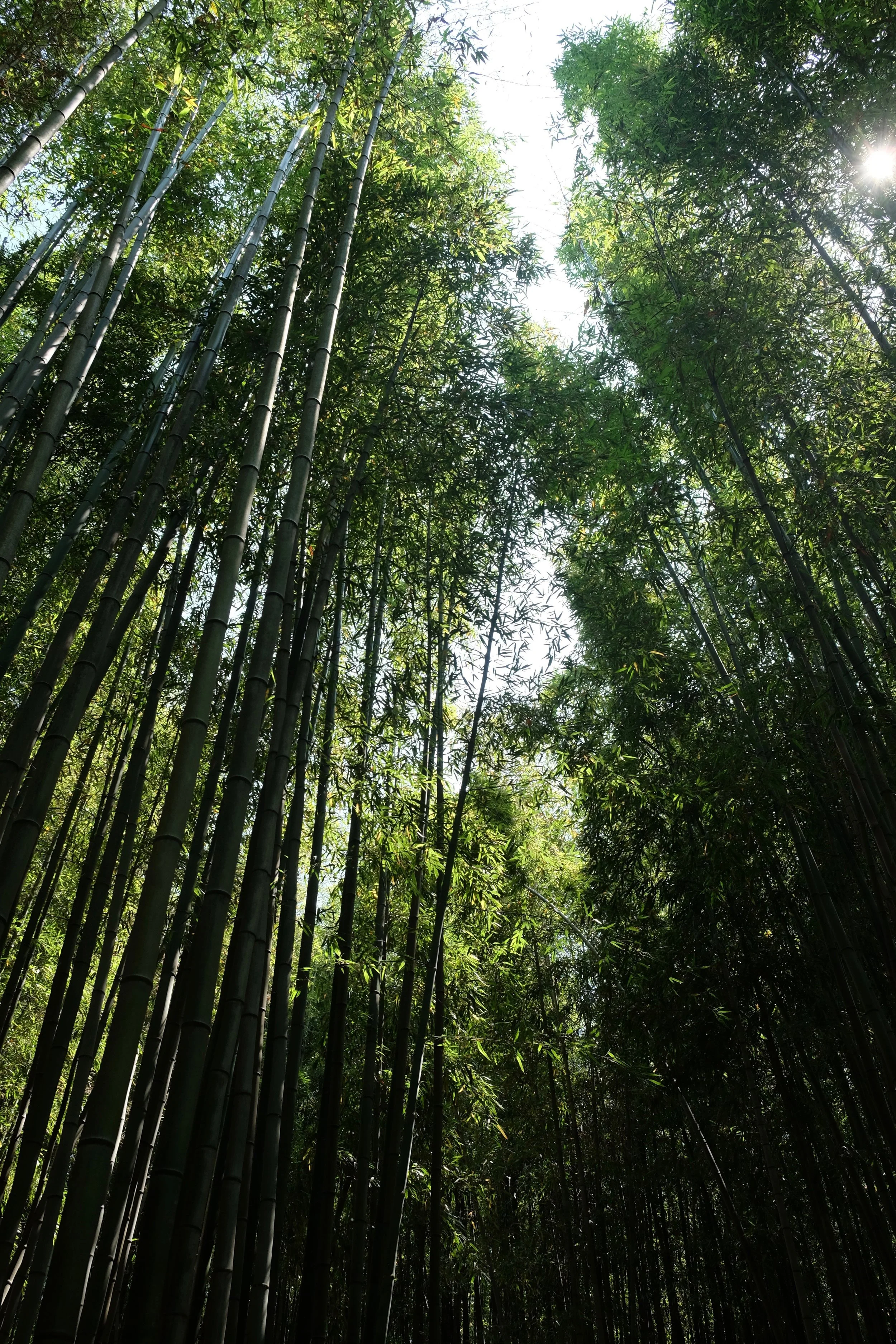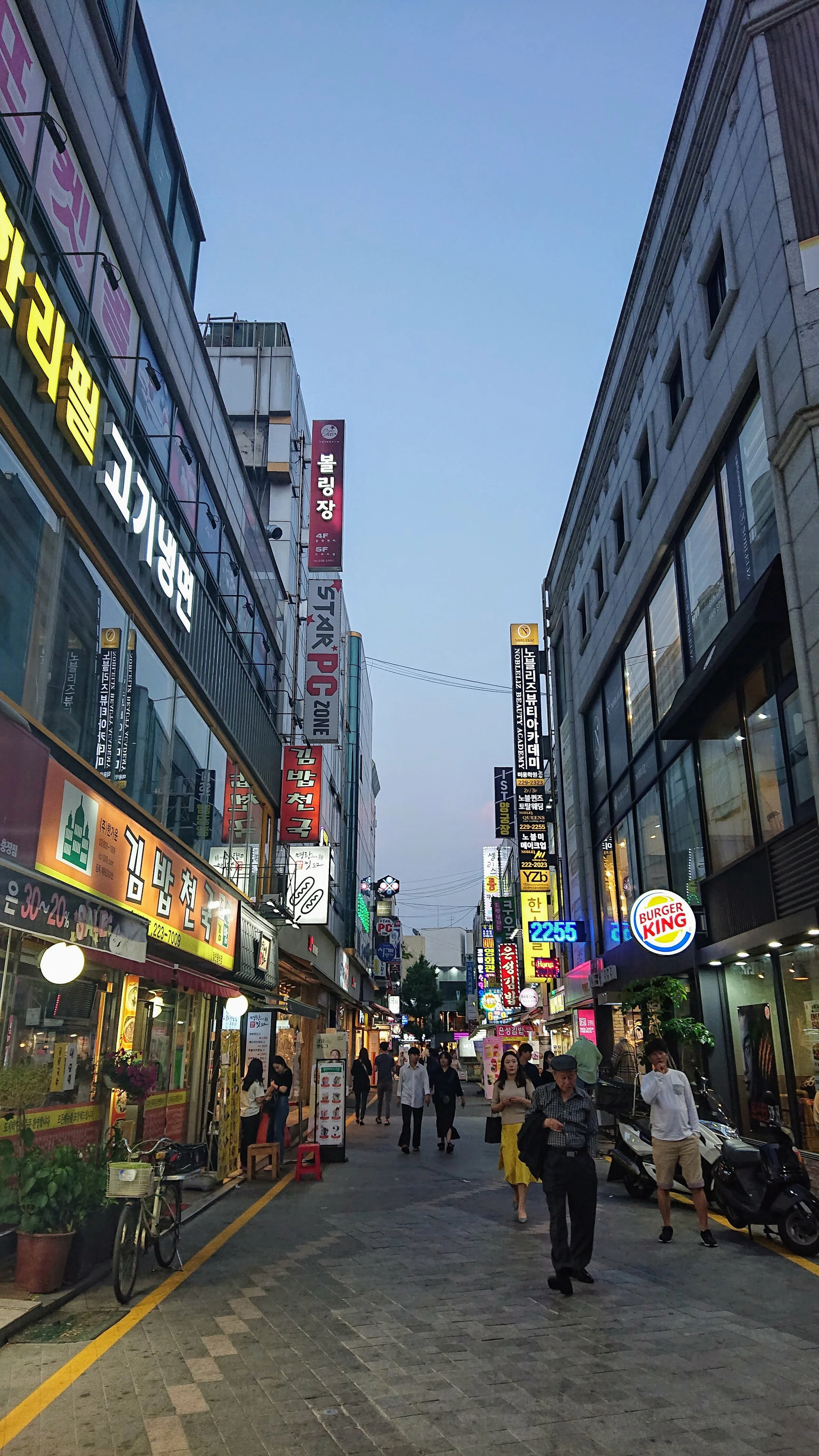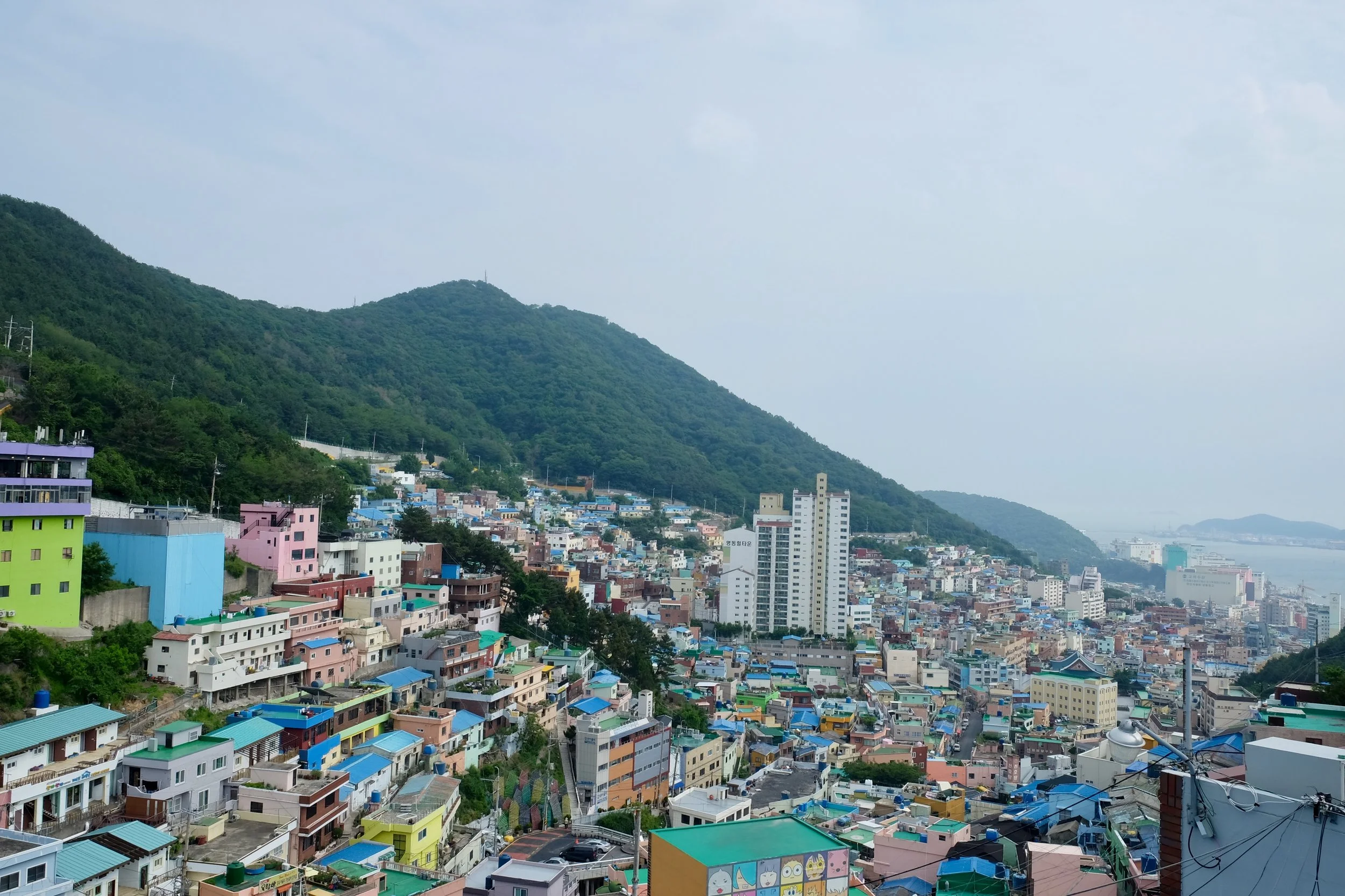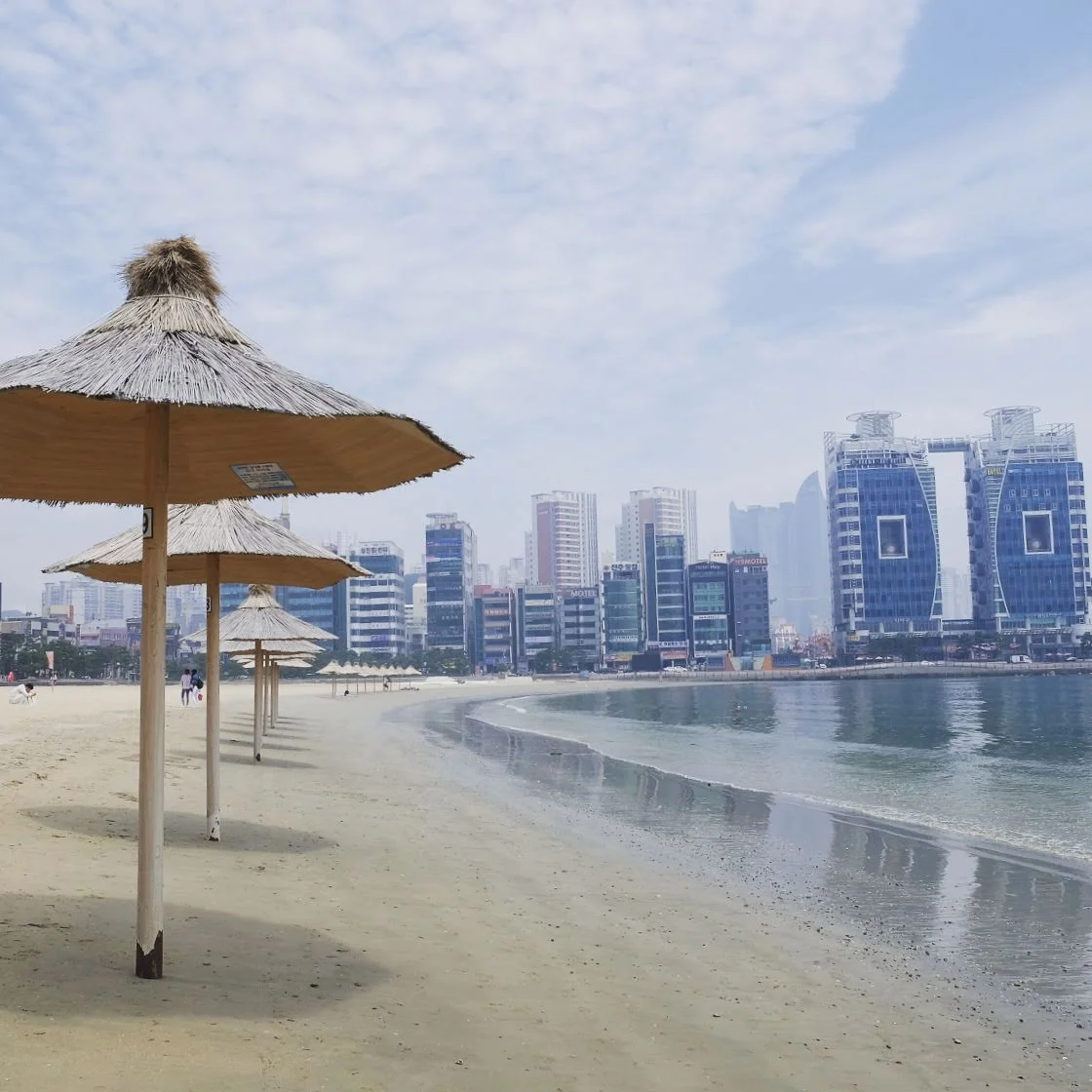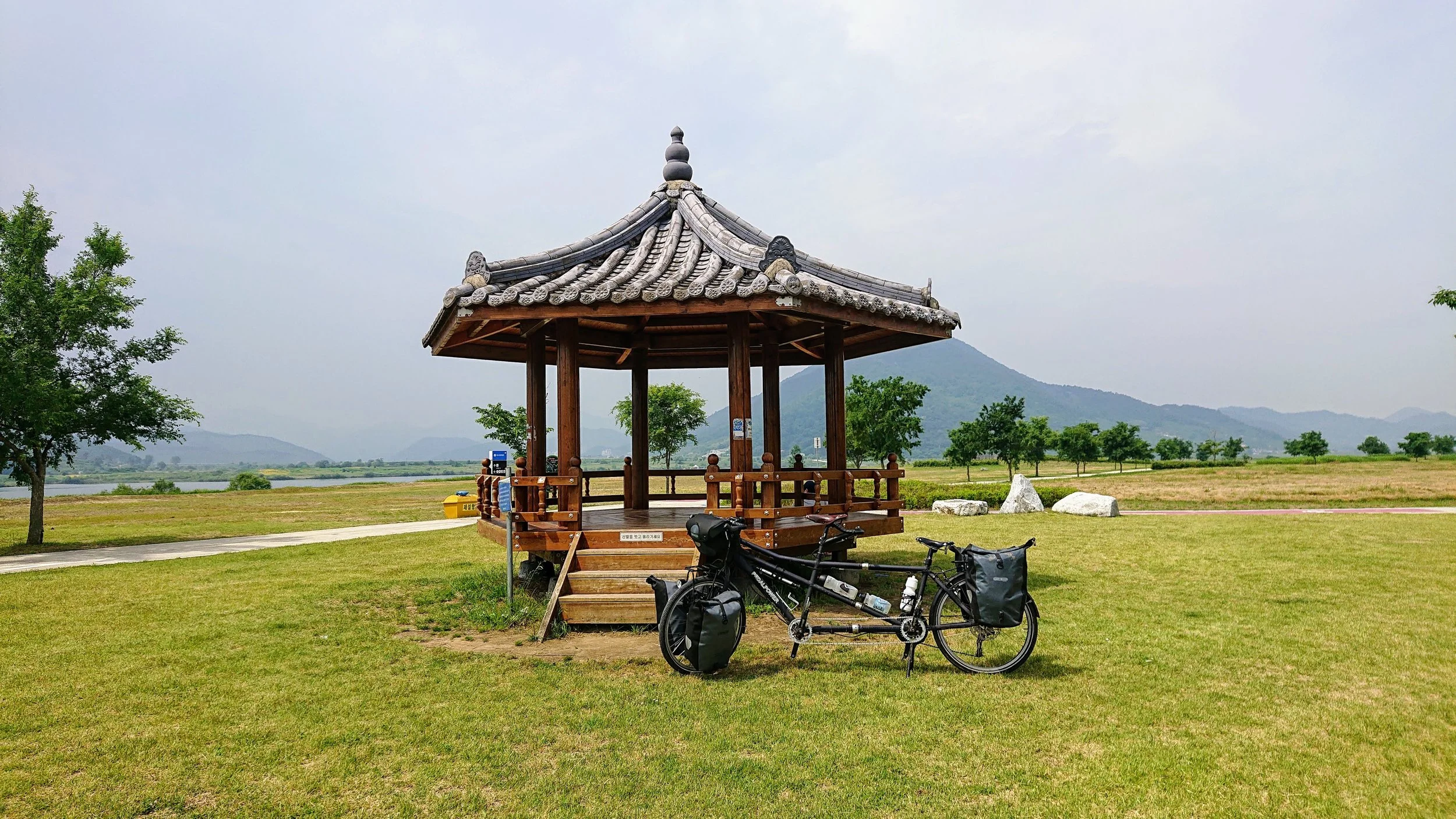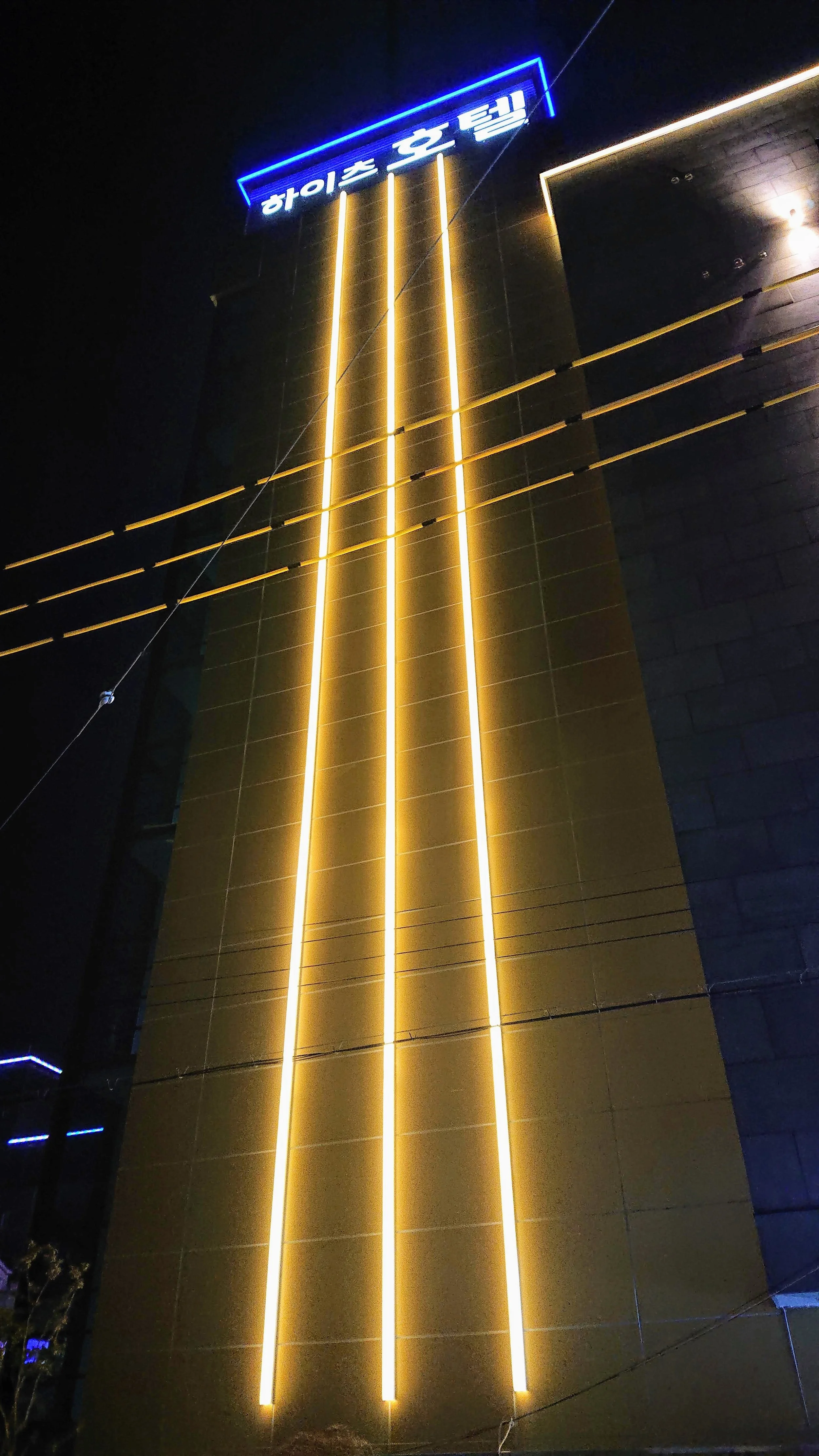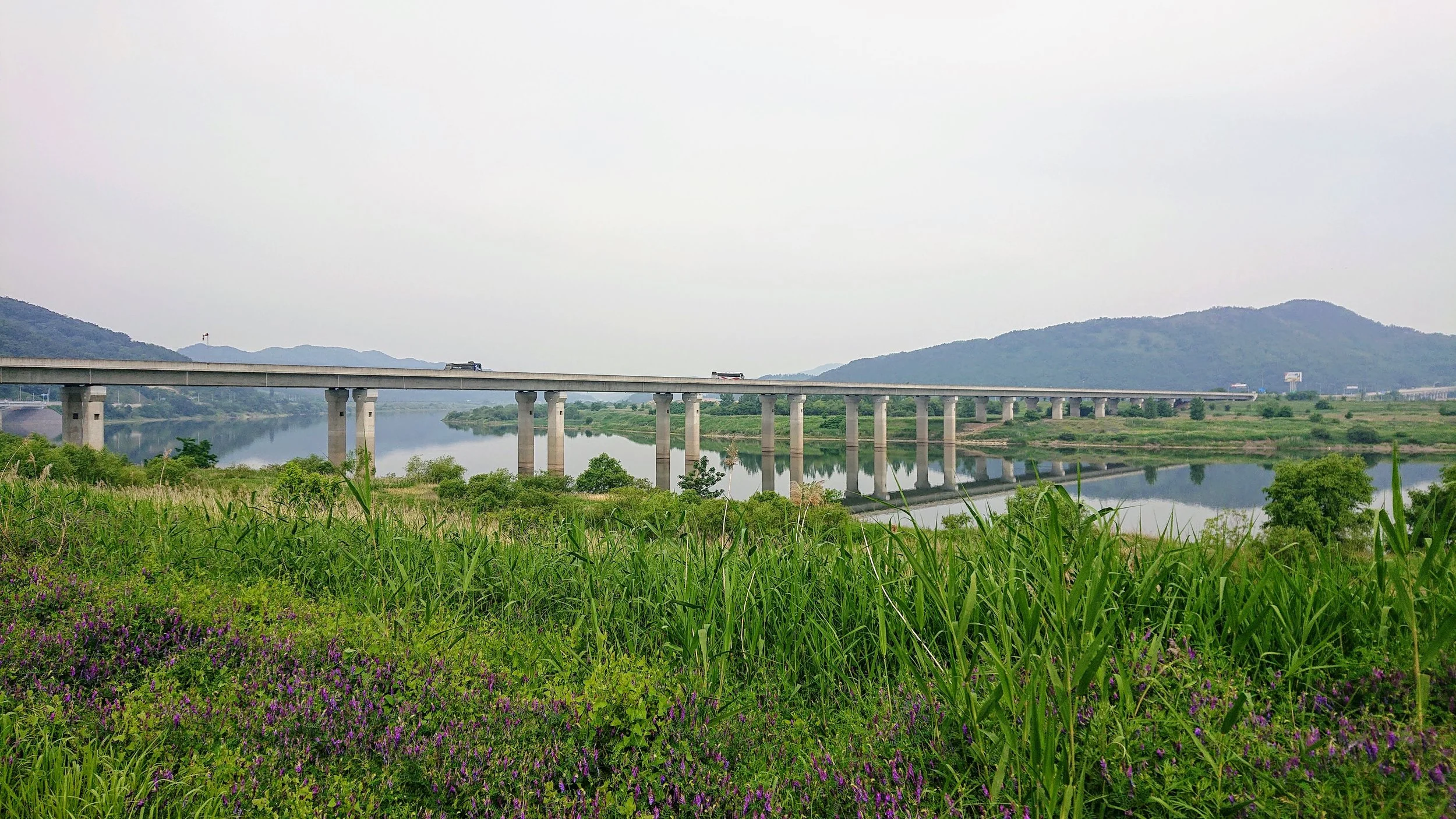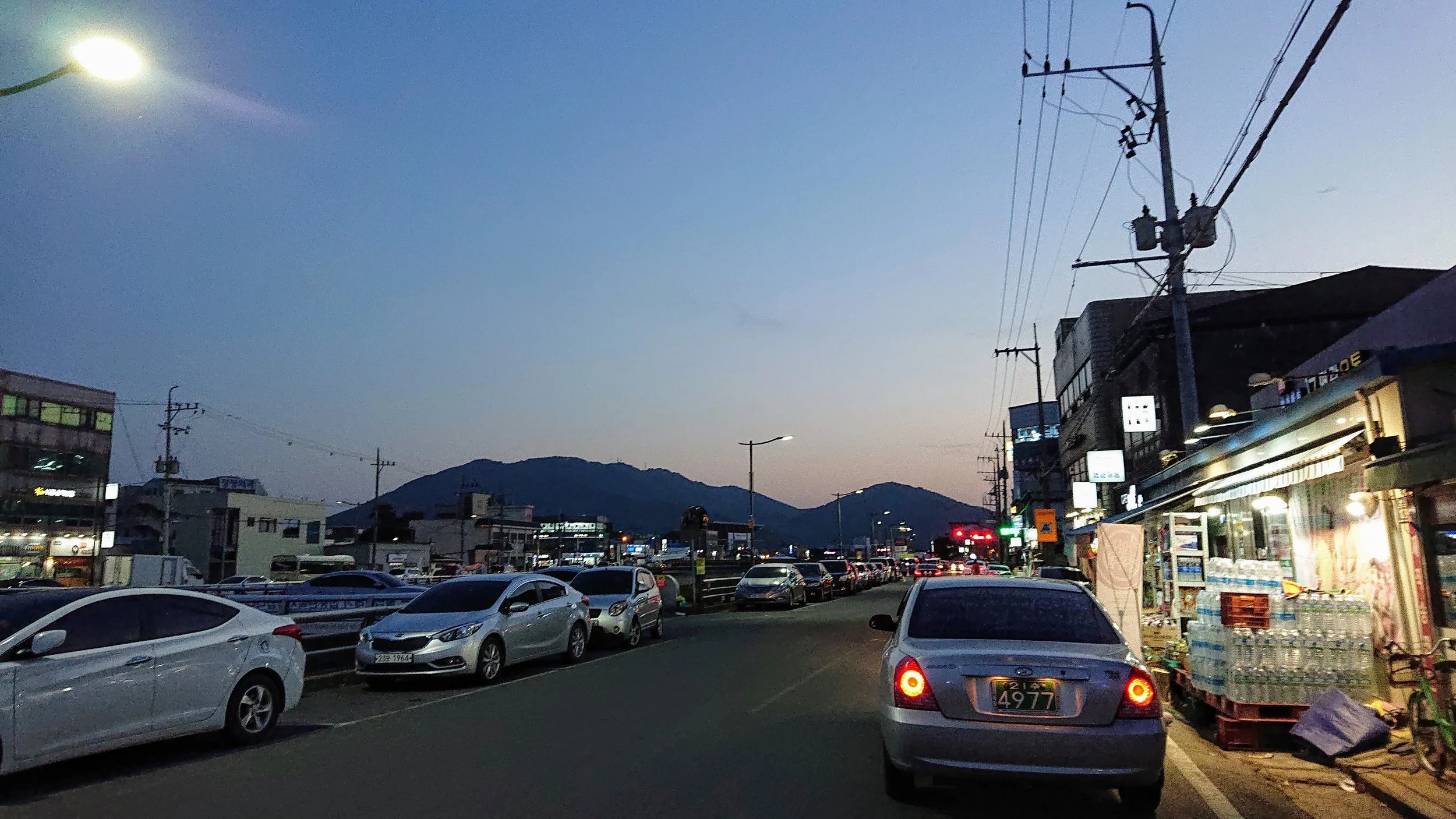On our final official day in the saddle, we woke up when we felt like it and wandered over to the bus station for the trip back up to Seoul. Since riding to Busan and achieving what we came here to do, we’ve prioritised enjoying ourselves over slogging away on the bike, and today we were going to take it nice and easy. When it doesn’t make sense to ride, we take the bus and don’t beat ourselves up about it. “Not today”, in the words of Arya Stark.
So, we (well, one of us) had every intention of riding to Cheonan today. We even set up an alarm, woke up relatively early, and started to get ready. But then…
Neil: “Darling, I’ve had a thought, and think that your idea of taking the bus to Cheonan today instead of riding might be the better option.”
Jess: “REALLY? I mean, I understand.”
We arrived in Gongju, a town only slightly less sleepy than Buyeo, for 1:30 PM. As always, the first order of business was to comb the local motel row, located just south of the fortress which is Gongju’s main attraction. Alas we came away disappointed, as everything we saw looked tired and old. Pressing on towards the bus terminal on the other side of the canal, things looked a little more promising.
Today was a very short day on the Four Rivers Trail, so we got to sleep in until 9:30 AM and didn’t hit the road until just before 11. After navigating through town, we found the bike path again by the river and rode along merrily.
As if we hadn’t had our fill of culture after the last two days, Buyeo just happens to house a UNESCO World Heritage Site known as the Baekje Historic Areas.
We’re strong now. “80km?" No bother, we’ll bang that out by lunchtime.”
A cool, overcast start to the day was most welcome after the last few sweaty rides, as it allowed us to get some good work done before it inevitably warmed up. We seemed to finally come into some luck, as the whole day was smooth sailing in general. The bike path started right by the hanok village in Jeonju and carried us smoothly and safely out of town.
The title of this blog post will become clear soon enough.
But first, a public service announcement. Sleeping in a traditional hanok during summer WILL trigger your (Jess’s) severe sweating problem, for it is like living in a furnace. The air just stood like a heavy cloud above our bodies until finally, we caved and turned the air conditioning on.
The small city of Jeonju holds considerable appeal, and while it’s finally receiving domestic visitors in droves, it’s still largely off the beaten trail of international tourists. Which is a bloody shame, because it’s probably the best place in the country in which to get a proper handle on Korean customs.
Jess’s allergies were proving to be a bigger hindrance than we thought, and we weren’t able to get going until 11 AM today due to her feeling completely knackered. Luckily, we only had about 45 kilometres to do before whistling into Jeonju for another full rest day, and even the climbs that lay ahead didn’t seem so daunting. A quite leisurely start to the day, then, which is never a bad thing, although the days are getting warmer now.
Jeongeup is a city in the North Jeolla province, about halfway between Gwangju and Jeonju (which is where we were headed tomorrow). Like many cities in Korea, it had a hyanggyo, or Confucian school, back in the day where people were trained in Confucian ways.
Because we knew that today’s ride included a big climb, and Jess dreads big climbs, we woke up bright and early at 7 AM and were out the door by 8, packed and all ready to go. Cycling down the still quiet street, we marvelled at our ability to get a move on when the situation called for it and patted ourselves on the back for a job well done.
That is, until Neil realised that, in his haste, he had neglected to drop one kid off at the pool.
Today was technically a rest day, but as readers can already tell, “rest” is a relative term for us. Doing nothing doesn’t come easy. So today we decided to leave the panniers behind and take a short trip to Damyang to visit the Juknokwon Bamboo Forest, which we had heard good things about from our friend Da-Woon, who hails from Gwangju proper.
The next day, we rode back along the main highway to the bus station, 10 km northwest of downtown Busan, to catch our express bus to Gwangju. The timetable stated a journey of 3 hours, and tickets were a steal at 7,500 won per person. Best of all, all bikes travel for free on the intercity lines – as long as they fit in the baggage compartment below decks. Which is by no means a given when your bike is as big as ol’ Samson.
The Number 25 Hotel doesn’t normally provide laundry service, but if you catch the older of the two front desk receptionists in a good mood, she might acquiesce with a cheeky grin. All in the name of the almighty Korean “service”. We collected our finished load in the morning, and thanks to her, we now had clean cycling kit for the second leg of our tour.
Most tourists like to play it safe. Wherever in the world they end up, they’ll visit the landmarks they were told they’re supposed to see, take their selfie for Instagram so everybody can see they’ve checked it off their list, and then leave to do it all over again in the next country.
Busan’s Haeundae Beach is one of those locations.
Busan is South Korea’s second-largest city, with a population of over 3.5 million inhabitants. Known colloquially as “Seoul by the sea”, Busan is equal parts glamorous, down-at-heel, charismatic, and anonymous. It prides itself on being the earthier, more honest counterpart to the posh and sometimes superficial capital.
Busan and the promise of two full rest days beckoned, and to say we were thrilled is an understatement. We still had close to 100 km to knock out, but it looked like it would be plain sailing. We were looking forward to experiencing city life again after a few days of quiet country non-action. Starting off bright and early, the first 30-40 kilometres flew by and we settled into a meditative cadence.
After all that unexpected extra time in the saddle, we were even more famished than usual when we rolled into Namji-eup, and stopped in front of the first restaurant we could find. Beggars can’t be choosers, and in this case, a fast food joint just inside the city limits would have to do.
What a bloody bastard of a day.
Where to begin?
The morning started off innocently enough as we made our way out of town onto the bike trail. Normally, this would be the start of our day’s adventures, but as we had deliberately picked a hotel that was just off the path, getting back onto it wasn’t such a big deal. That’s about the only good thing that happened today.
Hyeonpung is a tiny town - perhaps the smallest we’ve stayed in yet. There’s not much going on except for a bus terminal, some restaurants along a main road, and the obligatory convenience stores. With Mt. Biseul soaring in the background, everything seems dwarfed in comparison. This isn’t a place that you make a specific trip out for, but it was in the right spot when we needed it, so here we are.


